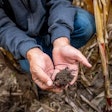
The Human Animal Bond Research Initiative (HABRI) Foundation announced funding for four research grants focused on the effects of human-animal interaction on human health, including outcomes for children undergoing hospital procedures, classroom learning and pets’ and humans’ shared health risks.
“HABRI-funded research projects are scientifically documenting how pets improve the health of people, pets and the communities where they live,” said Bob Vetere, president and CEO of the American Pet Products Association and president of the HABRI Board of Trustees, in a press release.
HABRI-funded research projects
For 2016, HABRI has awarded a total of US$175,000 to the following recipients and research projects:
1. Zenithson Y. Ng, DVM, MS (University of Tennessee, Knoxville): “The Effect of Animal-Assisted Intervention on Preoperative Anxiety and Dose of Sedation in Children”
2. Piers C. A. Barker, M.D (Duke University): “Impact of Animal Assisted Therapy on Quality, Completeness, and Patient and Parental Satisfaction in Children Undergoing Clinical Echocardiography”
“We know from previous scientific research that animal-assisted therapy is effective in alleviating anxiety in hospital patients,” said Margaret Gruen, DVM, PhD, DACVB of Duke. “This is one of the first studies to focus on the potential of animal-assisted therapy to impact a clinical outcome. If results are successful, this study could potentially add non-pharmacologic, low-cost options to improve diagnostic quality for children having medical imaging procedures and could encourage broader use of therapy dogs in other pediatric cardiology settings."
3. Amy McCullough, PhD (American Humane Association): “Pets in the Classroom (PIC): What are the Social, Behavioral, and Academic Effects of Classroom Pets for Children, 8-10 years?”
“The PIC study will provide meaningful insight on the broad impact of child and animal relationships and help prepare schools and teachers with the responsibilities necessary to support the humane and effective incorporation of pets in classrooms and curricula,” said McCullough, the American Humane Association’s national director of research and therapy.
4. Charles Faulkner, PhD (Lincoln Memorial University): “Measuring the Impact of a Mutually Reinforcing Relationship Between Pet Owners and Their Pets”
About the HABRI grant system
HABRI’s annual grant program is managed in partnership with the Morris Animal Foundation, a nonprofit organization that invests in science that advances knowledge and improves health for companion animals, horses and wildlife. Proposals were evaluated by an independent Scientific Advisory Board comprised of experts in the field and judges on study design, investigator capabilities, adequacy of facilities, cost effectiveness of budget and potential for impact on the way these areas of interest are diagnosed, treated or otherwise understood.
The HABRI Foundation maintains an online library of human-animal bond research and information, funds innovative research projects to scientifically document the health benefits of companion animals and informs the public about human-animal bond research and the beneficial role of companion animals in society.

















